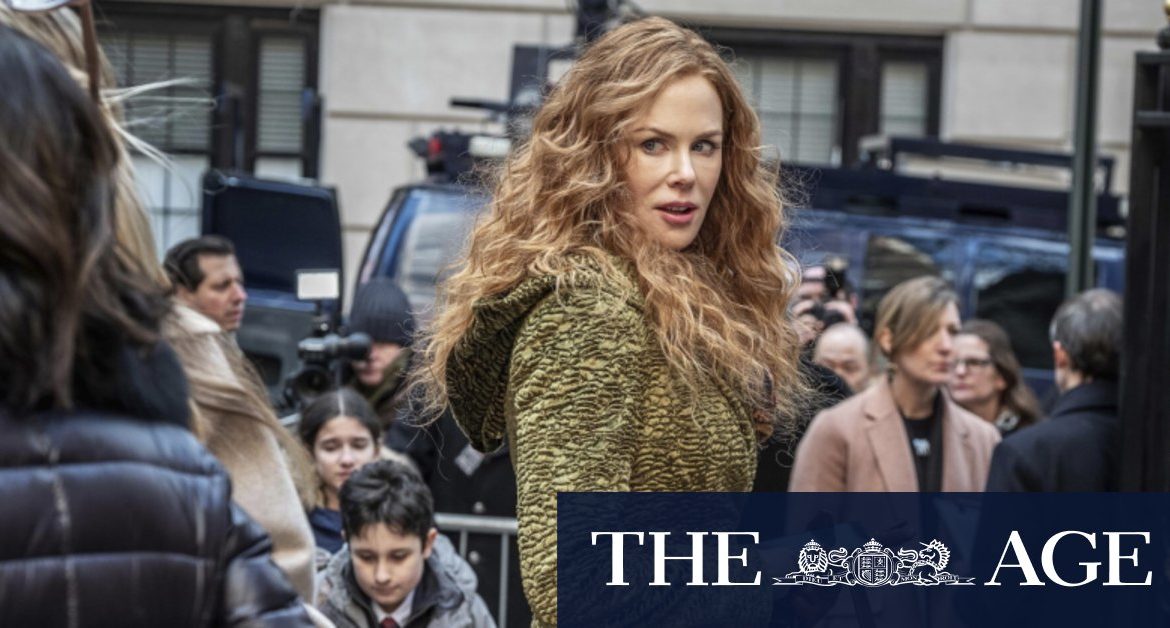It might explain, to some extent, why Princess Diana will always be portrayed as the innocent victim in the narrative of her life, her own indiscretions easily forgiven, and why in The Undoing, an improbable fantasy world where everyone is so good looking it’s hard to point the finger of guilt at anyone, that the killer is someone hiding in plain sight.
Across six uncomfortably taut episodes directed by Susanne Bier we watched the mirrored reflection of therapist Grace Fraser’s (Nicole Kidman) perfect world – handsome doctor husband, private school son, impeccable circle of friends – slowly warp into something unrecognisable and deeply disquieting.
The burning question … who killed Elena Alves (Matilda De Angelis)?Credit:HBO/Foxtel
Jonathan – an unfaithful, sociopathic liar – is the obvious suspect, but because of our own prejudices about power and wealth, he becomes an unlikely killer: a kind father with a twinkle in his eye, a gentle healer of children with cancer.
So if he did not do it, who did? Grace, desperate to hold her perfect world together? Their son Henry (Noah Jupe)? Elena’s vengeful husband Fernando (Ismael Cruz Córdova)? Or perhaps Grace’s father, the formidable Franklin Reinhardt (Donald Sutherland)?
Most striking about The Undoing is not what you see when you watch the episodes, but how much you miss. By virtue of journalistic need, I had the benefit of watching five of the six episodes as pre-broadcast screeners to prepare for interviews with the cast, and then re-watching them each Sunday night as they aired in the US on HBO.
The detail you pick up on second viewing is staggering. Those almost-missed fragments of scenes, and glimpses of character nuance, made the second pass an illuminating process. And like all great whodunits, the answer to the mystery is in front of your eyes the whole time, if only you could see it.

Hugh Grant and Nicole Kidman as Jonathan and Grace Fraser.Credit:HBO/Foxtel
We may have come a long way from watching the pilot of Twin Peaks, notepad and pencil in one hand, finger hovering on the pause button, scribbling down every detail which might somehow signpost the answer to the mystery of who killed Laura Palmer. But 20-odd years later, this doesn’t feel so different.
As each episode of The Undoing ended, the question – who killed Elena Alves? – had to be re-asked. And each episode brought with it enough new clues, or red herrings, to leave you guessing and guessing again.
Re-playing the key scenes became a lesson not in nuance but interpretation. The final scene of the penultimate episode – where Grace discovers the murder weapon hidden in her son’s violin case – is a great example. Are you seeing the shock of a mother who has discovered her son is a killer? Or that of a murderess exposed by the exhumation of the murder weapon?
If it does anything, the final episode flushes down the drain the lazy critical notion that The Undoing is somehow Big Little Lies 2.0. Instead the mystery gives way to the grand theatre of the court, and as Sofie Gråbøl’s prosecutor Catherine Stamper and defence attorney Haley Fitzgerald (Noma Dumezweni) go to war, screenwriter David E. Kelley’s brilliance (not to mention his formative years as a writer on LA Law) come to the fore.

Nicole Kidman and Hugh Grant in The Undoing.Credit:HBO/Foxtel
“Don’t pretend to be honest because you’ve told too many lies, don’t pretend to be a good husband or a decent father because you are arguably neither,” Fitzgerald says in one of many blisteringly uncomfortable scenes. “We don’t need to give them a good man, just someone who didn’t commit murder.”
But can she? With so much evidence mounting against him? As Sherlock Holmes himself once said, once you eliminate the impossible, whatever remains, no matter how improbable, must be the truth.
“Do you not tell patients that they so want to believe in their partners that they choose to unknow things, unsee things?” Catherine Stamper hurls at Grace when she is on the witness stand. “That sometimes the truth of who and what they married gets distorted by the desperation of what they want to be married to.”
Grace replies icily: “I know who and what I married.”
The greatest clue of course is the title of novel on which the series is based – You Should Have Known, by Jean Hanff Korelitz – not simply because it suggests that Grace should have known her husband better than she did, but also because it spells out the uncomfortable reality: that a man whose innocence was predicated on his prominence and power, and his wealth and influence, was all along, as we feared, a complete monster.
The Undoing is streaming on Binge.
Michael Idato is the culture editor-at-large of The Sydney Morning Herald and The Age.
Most Viewed in Culture
Loading







